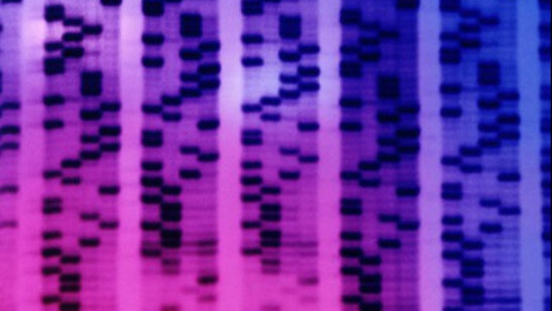DNA Spit Test More Accurate At Identifying Future Prostate Cancer Risk
June 5, 2024
Source: drugdu
 487
487
 Currently, the prostate-specific antigen (PSA) test is widely used to identify men who are at an increased risk of prostate cancer based on factors like age and ethnicity, as well as those showing symptoms. Elevated PSA levels may indicate prostate cancer, prompting further investigations such as MRI scans, biopsies, and treatments. However, the PSA test often results in false positives—incorrectly indicating prostate cancer in three out of four instances. It also detects cancers that grow so slowly they are unlikely to pose a significant health threat, leading to potentially unnecessary medical procedures. Now, a saliva-based test that individuals can perform at home has proven better at predicting the risk of developing prostate cancer than the traditional blood test.
Currently, the prostate-specific antigen (PSA) test is widely used to identify men who are at an increased risk of prostate cancer based on factors like age and ethnicity, as well as those showing symptoms. Elevated PSA levels may indicate prostate cancer, prompting further investigations such as MRI scans, biopsies, and treatments. However, the PSA test often results in false positives—incorrectly indicating prostate cancer in three out of four instances. It also detects cancers that grow so slowly they are unlikely to pose a significant health threat, leading to potentially unnecessary medical procedures. Now, a saliva-based test that individuals can perform at home has proven better at predicting the risk of developing prostate cancer than the traditional blood test.
Researchers from The Institute of Cancer Research (London, UK) and The Royal Marsden NHS Foundation Trust (London, UK) conducted a trial of this innovative DNA test that screens for genetic variants associated with prostate cancer. This test showed a lower rate of false positives compared to the PSA test, identified cancer cases that the PSA test missed, and detected a higher percentage of aggressive cancers. It even identified prostate cancer cases that were overlooked by MRI scans. The earlier BARCODE 1 study calculated a polygenic risk score (PRS) from DNA in saliva, based on 130 genetic variations known to be linked to prostate cancer. In the new study, the researchers assessed 6,142 European men aged 55 to 69, a demographic at increased risk for prostate cancer. Those in the top 10% of risk, as determined by their PRS, were invited for further screenings.
Following MRI and prostate biopsy screenings in this high-risk group, the PRS saliva test identified prostate cancer in 187 of the 558 diagnosed men, accounting for 40% of the group. In comparison, the PSA test only identified 25% of these cases. Moreover, the PSA test often detected cancers that might not necessitate treatment, while the PRS saliva test identified a higher proportion of aggressive cancers, which are more likely to be life-threatening. Among the 187 men detected by the PRS test, 77.8% or 147 participants had PSA levels below 3.0ug/L, levels typically deemed normal, where no further screening would normally be required. It was also noted that the PRS test outperformed MRI scans in accuracy for men with a high genetic risk, as it confirmed prostate cancer in 119 men, approximately 63.6% of the participants, who were not detected by MRI.
Given the frequent inaccuracies of the PSA test, the PRS saliva test represents a potentially valuable additional screening tool for men at increased risk of prostate cancer or those exhibiting symptoms. Future studies will monitor men with high PRS scores to determine if they develop prostate cancer. Since the start of the study, an international research team has identified additional risk variants for men of Asian and African descent, and the ICR team plans to test a saliva-based screening for these groups as well. The GBP 42 million TRANSFORM trial, co-led by the ICR team, will directly compare the effectiveness of the PRS saliva test against the PSA blood test and MRI scan, evaluating whether men with a low genetic risk might benefit from this novel screening approach.
“With this test, it could be possible to turn the tide on prostate cancer. We have shown that a simple, cheap, spit test to identify men at higher risk due to their genetic makeup is an effective tool to catch the cancer early,” said Professor Ros Eeles, Professor of Oncogenetics at The Institute of Cancer Research, and Consultant in Clinical Oncology and Cancer Genetics at The Royal Marsden NHS Foundation Trust. “Building on decades of research into the genetic markers of prostate cancer, our study shows that the theory does work in practice – we can identify men at risk of aggressive cancers who need further tests, and spare the men who are at lower risk from unnecessary treatments.”
“Our next step will be for us to test the genetic markers we have identified that are associated with a risk of prostate cancer in diverse populations, to ensure this test can benefit all men. We are currently comparing the saliva test to other potential screening options, as part of the TRANSFORM trial, to assess the most cost-effective and accurate way to screen men for prostate cancer,” added Eeles.
Source:
https://www.labmedica.com/molecular-diagnostics/articles/294801381/dna-spit-test-more-accurate-at-identifying-future-prostate-cancer-risk.html
Read more on
- China Sino Biopharmaceutical Signs Exclusive Licensing Agreement with Sanofi for Rofalcitinib March 4, 2026
- Gan & Lee Pharmaceuticals’ new PROTAC drug GLR2037 tablets have been approved for clinical trials to enter the field of prostate cancer treatment March 3, 2026
- AideaPharmaceuticals plans to raise no more than 1.277 billion yuan through a private placement to focus on the global clinical development of innovative HIV drugs March 3, 2026
- Giant Exits! Its Star Business Acquired March 3, 2026
- Focusing on cardiovascular and cerebrovascular diseases! OpenMediLead Medical Intelligence Dual Engines Launch Internal Testing, Connecting Drug Development and Clinical Diagnosis in a Closed Loop March 3, 2026
your submission has already been received.
OK
Subscribe
Please enter a valid Email address!
Submit
The most relevant industry news & insight will be sent to you every two weeks.



